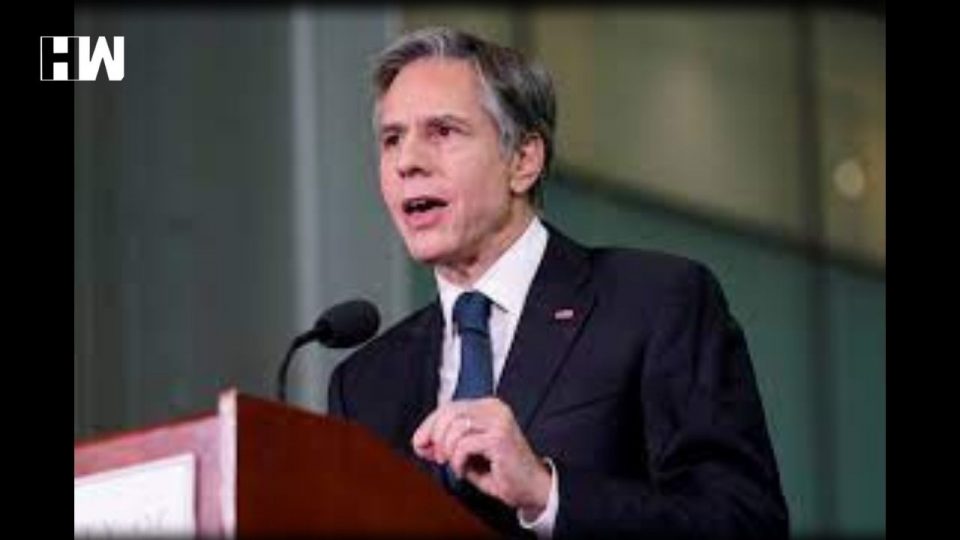The National Investigation Agency examined 34 terrorism-related cases related to ISIS and arrested 160 persons, including 10 alleged al-Qaeda operatives from Kerala and West Bengal, in September: Reports.
Mumbai: According to the US reports, there are 66 Indian-origin fighters affiliated with the global terrorist group Islamic State. This claim has been made by the US State Department in the latest report released on Terrorism. Along with this, the report commended the proactiveness of India’s counter-terrorism agencies, including the NIA, in detecting and deterring international and regional terrorist forces.
U.S. Secretary of State Antony Blinken, in the 2020 Country Reports on Terrorism issued on Thursday, said that India collaborates with the United States on implementing UNSCR 2309 and is enforcing compliance with the dual-screen X-ray mandate for cargo screening at airport locations. This is being done to ensure the safety of the citizens.
In the report released by the US, it has been claimed that till November, information has been received about the involvement of 66 Indian-origin fighters with the Islamic State. According to this, no Foreign Terrorist Fighter (FTF) returned to India during the year 2020.
The report praised the Indian counter-terrorism agencies, including the National Investigation Agency (NIA), for proactively identifying and deterring international and regional terrorist forces. “The NIA investigated 34 cases related to Islamic State and arrested 160 people, including 10 al-Qaeda members from Kerala and West Bengal in September,” the report said.
“The National Investigation Agency examined 34 terrorism-related cases related to ISIS and arrested 160 persons, including 10 alleged al-Qaeda operatives from Kerala and West Bengal, in September,” the report said.
Giving details of the terrorists’ arrests made by the NIA, the report said that the premier investigation agency arrested 10 alleged al-Qaeda-affiliated operatives from Kerala and West Bengal on September 19 and 26.
“Through the end of September, the NIA had investigated 34 terrorism cases it indicated were related to ISIS and arrested 160 persons,” it said.
The Kolkata Police counter-terrorism Special Task Force on May 29 arrested Abdul Karim, the second-in-command of Jamaat-ul-Mujahideen Bangladesh, on suspicion of involvement in a 2013 bombing in Bodh Gaya, it said.
“India responds to the US requests for information related to terrorism investigations in a timely manner and makes efforts to mitigate threats in response to US information.
“Over the past two years, collaborative efforts have disrupted terrorist travel and alerted US authorities to possible threats in the United States and against US interests,” the report said.
Officials in India remain concerned about internet use for terrorist recruitment and radicalisation to violence, as well as for fomenting interreligious tensions, it said.
“In 2020 there were multiple reports in the media and from the NIA of suspected cases of online terrorist radicalisation, particularly in southern Indian states,” the report said.
India is active in leadership roles in the many regional and international fora in 2020, where it has promoted multilateral counterterrorism cooperation, it said.
India has agreed to share intelligence on terrorism with Sri Lanka and the Maldives. India’s long-standing defence relationship with Russia extends to counterterrorism issues, the US State Department report added.
The US report, meanwhile, pointed towards the “gaps” in the interagency intelligence and information sharing.
It said that the “Indian security agencies are effective in disrupting terror threats, although gaps remain in inter-agency intelligence and information sharing”.
“The Indian Multi-Agency Centre (MAC) collaborates with the US on exchanging terrorist screening information. In the absence of a National Counter Terrorism Center, the MAC conducts real-time collation and sharing of intelligence among federal and state security agencies.
“Several Indian states have established state-level MACs to disseminate terrorism information to law enforcement,” the report said.
It also said that Indian security forces demonstrate limited capacity to patrol and secure extensive maritime and land borders.
“India is implementing UNSCR 2396 to improve detection and deterrence of terrorist travel by using watchlists, implementing biographic and biometric screening at ports of entry, and expanding information sharing,” it said.
The United Nations Security Council Resolution 2396 (2017) requires Member States to develop and implement systems to collect biometric data in order to identify terrorists responsibly and properly.
As an independent media platform, we do not take advertisements from governments and corporate houses. It is you, our readers, who have supported us on our journey to do honest and unbiased journalism. Please contribute, so that we can continue to do the same in future.

